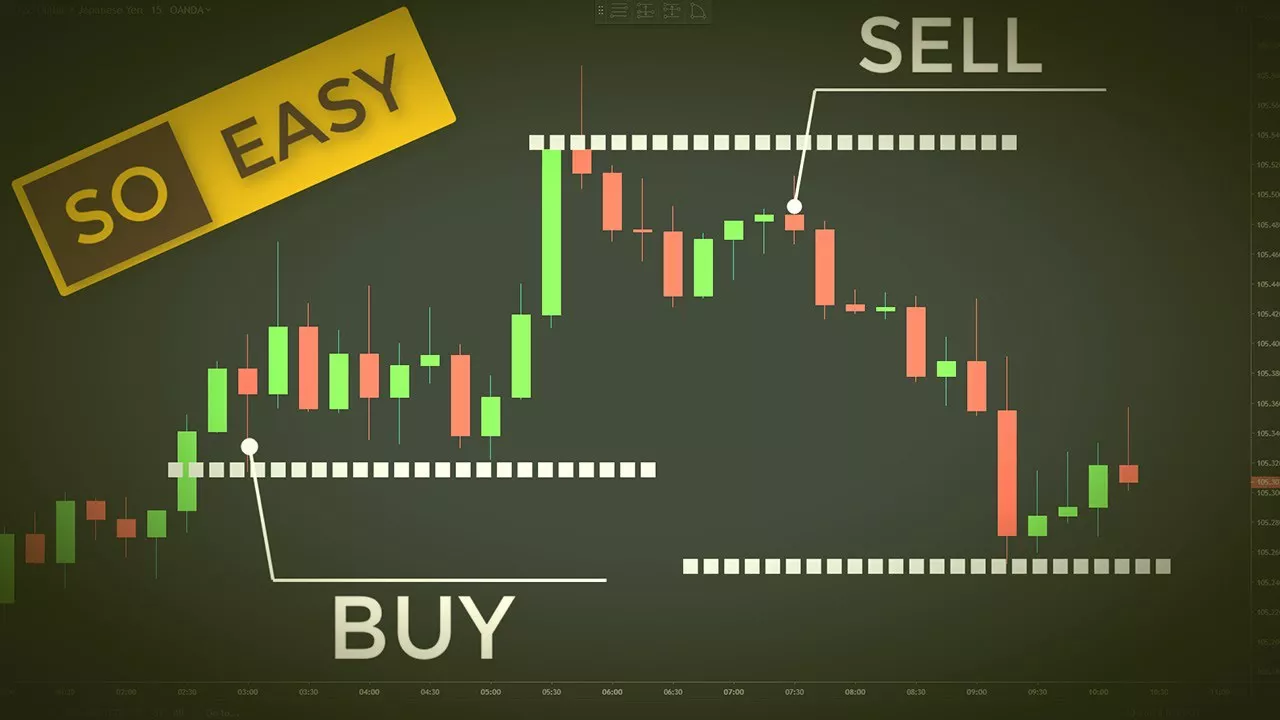Index funds are one of the most popular investment vehicles for both beginner and experienced investors. They offer a low-cost way to gain broad exposure to the stock market and have become a cornerstone of many investors’ portfolios due to their simplicity, diversification, and historically strong performance. If you’re interested in purchasing index funds online but aren’t sure where to start, this article will guide you through the process, from understanding what index funds are to selecting the best platform for buying Index funds.
What Are Index Funds?
Before diving into where to buy index funds online, it’s essential to understand what they are and why they are an attractive investment option.
Definition of Index Funds
An index fund is a type of mutual fund or exchange-traded fund (ETF) designed to replicate the performance of a specific market index, such as the S&P 500 or the NASDAQ-100. These funds invest in the same stocks that are included in the index they track, making them a low-cost and efficient way to invest in a broad market segment.
Index funds offer investors a simple way to diversify their portfolios, reduce individual stock risk, and lower management costs. By tracking an index, these funds avoid the need for active stock picking, which helps keep fees lower compared to actively managed funds.
Benefits of Investing in Index Funds
There are several reasons why index funds are a popular investment choice:
Low Fees: Since index funds are passively managed (they simply track an index), the management fees are generally lower than actively managed funds.
Diversification: Index funds allow you to invest in a wide variety of stocks, spreading your risk across a broader segment of the market.
Long-Term Growth: Historically, index funds have provided solid long-term returns, often outperforming actively managed funds in the process.
Simplicity: Index funds are easy to buy and manage. There’s no need to research individual stocks or market timing strategies.
Types of Index Funds
When deciding to buy index funds online, it’s important to know which type of index fund is right for your investment goals. There are two main categories of index funds:
1. Mutual Fund Index Funds
Mutual funds are pooled investment vehicles managed by financial institutions. When you invest in a mutual fund index, your money is combined with that of other investors and used to purchase a range of securities that track a specific index. Mutual fund index funds typically have a higher minimum investment requirement than ETFs, and they are traded at the end of each trading day at the net asset value (NAV).
2. Exchange-Traded Funds (ETFs)
ETFs are a type of index fund that trades on the stock exchange like individual stocks. They can be bought and sold throughout the day at market prices, which may be slightly different from the NAV. ETFs are generally more flexible than mutual funds and are the preferred choice for many investors due to their lower expense ratios, ease of access, and the ability to trade in real-time.
Where Can You Buy Index Funds Online?
Now that you have a basic understanding of index funds, the next step is to figure out where to buy them. There are several online platforms where you can purchase index funds, including traditional brokerage firms, robo-advisors, and even directly from the fund provider. Below, we’ll explore the different options for buying index funds online and help you choose the platform that best fits your needs.
1. Traditional Online Brokers
Online brokerage firms are one of the most popular places to buy index funds. These platforms offer a wide range of investment options, including mutual funds, ETFs, and individual stocks. Below are some of the top online brokers where you can buy index funds:
Charles Schwab
Charles Schwab is a well-established online brokerage that offers a range of index funds with low or no fees. The company provides access to both mutual fund index funds and ETFs that track major indexes like the S&P 500, Dow Jones Industrial Average, and NASDAQ. Schwab’s platform is user-friendly, making it an excellent choice for beginner investors.
Pros:
- No commissions on stock and ETF trades.
- A wide selection of low-cost index funds.
- Low minimum investment requirements for most funds.
- Educational resources for new investors.
Vanguard
Vanguard is one of the pioneers of index fund investing and remains one of the most reputable names in the industry. The company offers a wide variety of index mutual funds and ETFs with some of the lowest expense ratios in the industry. Vanguard’s platform is tailored to long-term, buy-and-hold investors who prefer to invest in a diversified portfolio.
Pros:
- Extremely low expense ratios for index funds.
- Wide variety of mutual fund and ETF options.
- Long history of providing solid returns for investors.
Fidelity
Fidelity is another well-known brokerage firm that offers both index mutual funds and ETFs. It is highly regarded for its low-cost investment options and excellent customer service. Fidelity also provides several of its own proprietary index funds, which come with no expense ratio fees, making them even more attractive for investors.
Pros:
- Access to Fidelity’s own zero-fee index funds.
- Low-cost ETF options.
- Robust research tools and educational content.
E*TRADE
ETRADE is another popular online broker that offers a wide range of investment options, including index funds and ETFs. ETRADE provides an easy-to-use platform for investors and offers commission-free trading for stocks and ETFs.
Pros:
- Low-cost ETFs and mutual funds.
- Commission-free stock and ETF trades.
- Access to several research and analysis tools.
2. Robo-Advisors
Robo-advisors are automated investment platforms that build and manage a diversified portfolio for you, usually at a low cost. These platforms typically use index funds or ETFs to create portfolios that match your risk tolerance and investment goals. Robo-advisors are an excellent choice for investors who want to invest in index funds but don’t have the time or expertise to select individual funds.
Betterment
Betterment is one of the leading robo-advisors that builds portfolios using ETFs, many of which are index funds. The platform uses an algorithm to determine the best asset allocation based on your financial goals, risk tolerance, and time horizon. Betterment charges a management fee, but it’s often lower than what you would pay with a traditional financial advisor.
Pros:
- Low fees and easy-to-use platform.
- Automatic rebalancing of your portfolio.
- Personalized investment advice based on your goals.
Wealthfront
Wealthfront is another popular robo-advisor that offers portfolios composed mainly of low-cost index funds and ETFs. Like Betterment, Wealthfront uses an algorithm to allocate your funds across various asset classes. Wealthfront also offers financial planning tools to help you optimize your investment strategy.
Pros:
- Low-cost portfolios with automatic rebalancing.
- Tax-efficient strategies, including tax-loss harvesting.
- Financial planning tools.
3. Directly from Fund Providers
Some of the largest fund providers allow you to buy index funds directly from them, bypassing intermediaries like brokers or robo-advisors. This option can be ideal if you’re focused on a specific provider or fund.
Vanguard
Vanguard allows investors to buy its index mutual funds directly through its platform. Vanguard’s funds are known for their low expense ratios, and buying directly from the provider allows you to avoid paying any commissions or broker fees.
BlackRock (iShares)
BlackRock’s iShares is one of the largest providers of ETFs, including several index funds that track major stock market indexes. You can purchase iShares ETFs through any brokerage or directly through BlackRock’s platform.
Schwab
Schwab also allows you to invest in their proprietary index funds directly through their platform. Schwab’s index funds cover a range of indexes, including domestic, international, and sector-specific indices.
4. Mobile Apps
In addition to traditional brokerage firms, there are several mobile apps that allow you to buy index funds online. These apps are convenient, user-friendly, and often offer commission-free trades for ETFs and mutual funds.
Robinhood
Robinhood is a mobile-first investment app that allows you to buy and sell a wide variety of ETFs, including index funds. It is popular for its user-friendly interface and zero-commission trading model. However, Robinhood only offers a limited selection of mutual funds, and it is better suited for ETF index funds.
Acorns
Acorns is an app that rounds up your everyday purchases and invests the spare change in a diversified portfolio, often composed of low-cost index funds. Acorns is a good choice for beginner investors who want to start small and invest passively over time.
Conclusion
Investing in index funds is an excellent way to build wealth over the long term, offering low costs, diversification, and simplicity. There are several online platforms where you can buy index funds, including traditional brokerage firms, robo-advisors, and even directly from fund providers. By considering your investment goals, time horizon, and risk tolerance, you can select the best platform for buying index funds online.
Whether you choose a low-cost brokerage like Vanguard or Schwab, or prefer the automated approach offered by robo-advisors like Betterment, the key is to start investing as early as possible and let time work in your favor.
Related topics:
































